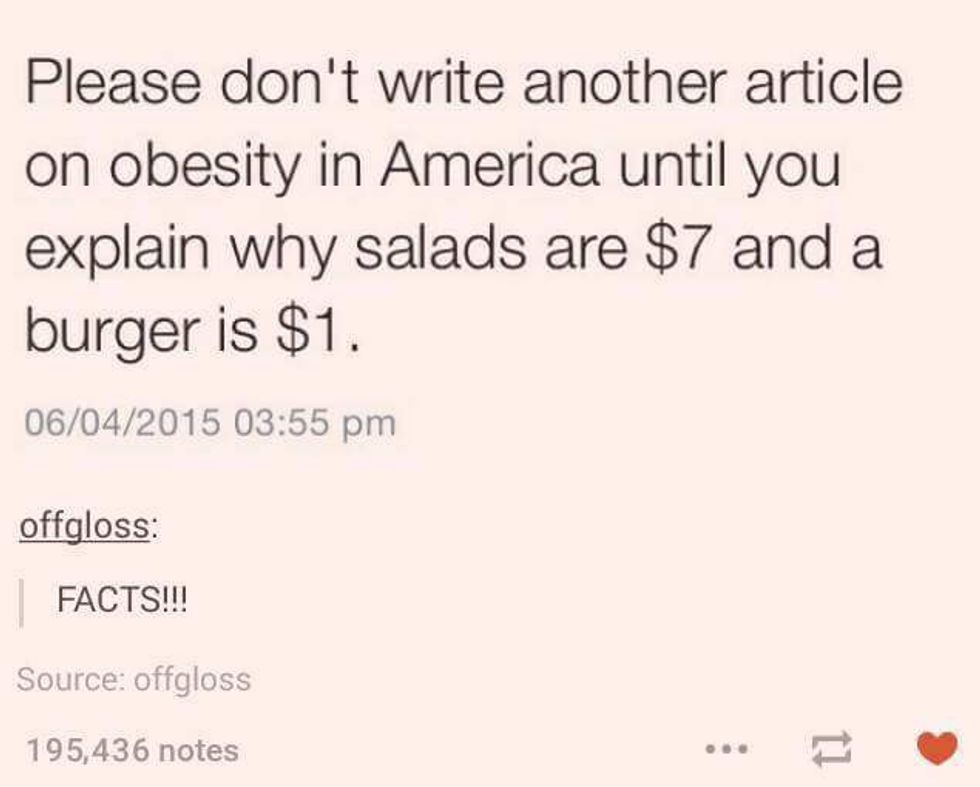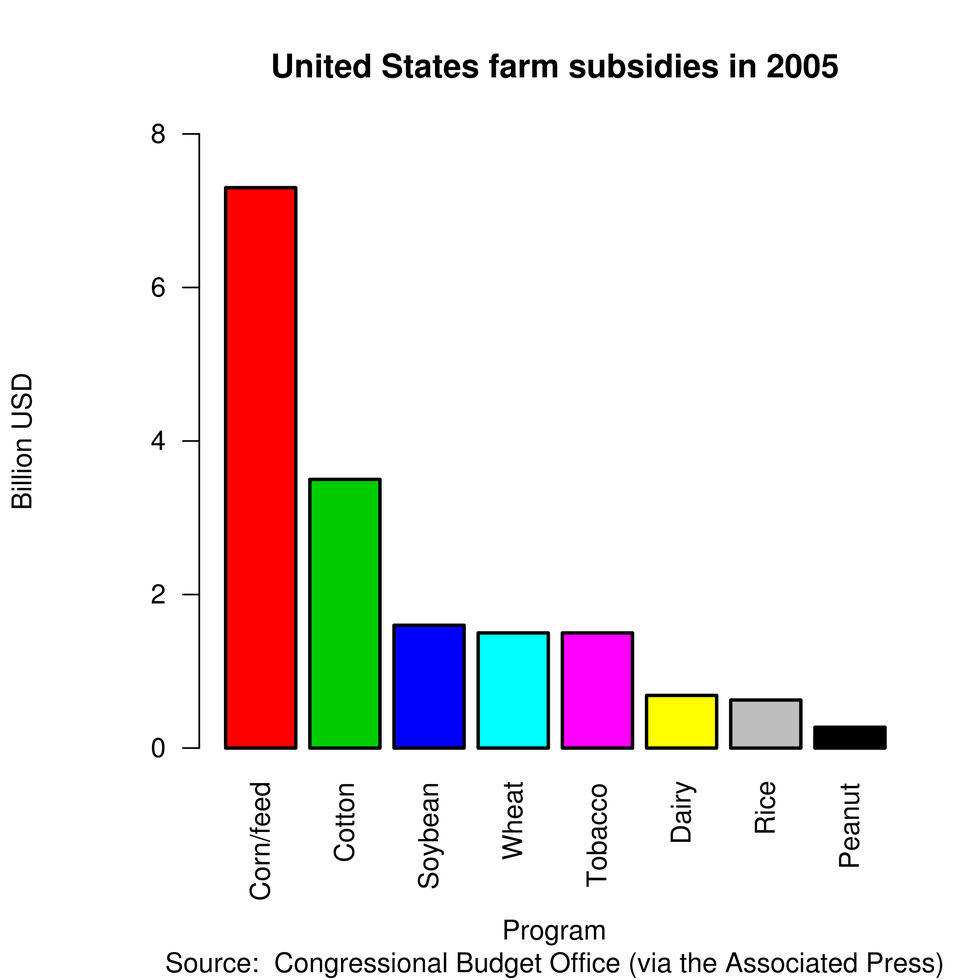As a preface, the words “unhealthy” and “nutrient-poor” will be used interchangeably. They are defined as foods with high caloric or high-sugar content with low nutritional value.
“Please don’t write another article on Obesity in America until you explain why salads are $7 and a burger is $1,” exclaimed the biting Tumblr screenshot. While the meme exaggerates for the purpose of humor-- a hamburger costs a little more than a dollar and salads are not always healthy--it touches on a critical issue: obesity, especially among lower income families.
Before examining the hamburger-salad case, the screenshot presents an interesting dilemma: if people recognize that the costs associated with eating poorly (e.g., lower academic performance, higher medical expenses, self-esteem, and so on) outweigh the benefits, why do people continue to pursue such diets?
The simple answer is that they are unable to access healthier foods. It is an undisputed fact that the costs of nutrient-rich foods are more expensive. For low income households, the “healthy food premium” serves as a barrier which many can ill-afford to overcome.
To fully understand the dilemma, it is worth looking into the psychology of choice. Behavioral economists have found that people will discount future benefits for the purpose of present satisfaction, a phenomenon known as hyperbolic discounting -- or simply, procrastination. Therefore, people may choose potato chips over apples on the basis the former is easier to consume and is cheaper, despite the consumer's understanding of his future sacrifices.
This may seem irrational, perhaps even lazy. But consider a low-income family that is unable to budget for healthy foods. While they are aware of the benefits of healthy living, their geography and incomes limit their opportunities for future investments in well-being. And without the social norm that encourages healthy living that wealthier counterparts can afford, many are trapped in a dietary ‘health-hole.’
This leads us to this question: why are hamburgers more expensive than salads?
First, healthier foods are by nature more expensive. Take the apple: its production costs are high, it is seasonally limited, it expires sooner than non-produce alternative, it is unsavory, and so on. Consumers bear the burden of paying for the costs of produce logistics. They also are responsible for proper storage and preparation, which take time and resources away from perhaps more important activities.
Second, the prices of certain ingredients -- especially those found in hamburgers -- have been forced downwards. Subsidies have made crops such as corn more abundant than what the market demands. Producers began experimenting with corn as a sugar alternative in the 1970’s, and America was later introduced to High Fructose Corn Syrup. In addition, the prevalence of cheap corn and wheat has reduced the costs of bread production and feeding cattle, which partially explains the reduction in the price of beef.
Worse, farmers have incentive not to grow fruits and vegetables, because they are disqualified from direct subsidies if they choose to grow other crops.
Of course, there are other considerations. Burgers and salads are a poor comparison, given that there are significant variations in both items (gourmet burgers in cost more than a McDonald’s salad). Salads use more ingredients than hamburgers, and so on.
Many solutions have been offered but have had limited impact. For example, a food tax might be implemented. But for how much? There's almost no way of knowing. And won’t low-income consumers bear the tax burden? Perhaps policy makers should curb promotion of unhealthy foods, akin to the prohibition of cigarette advertising. But will this really stop poorer families from going to convenience stores (who almost never advertise)?
At least for now, we should accept that the tax we pay for living in a food-abundant country like the United States is obesity. It’s a small price relative to the alternative: living with food scarcity. In reality, the problem of obesity among low income groups is a societal and systemic problem. Finding the right set of solutions is a herculean undertaking, which I doubt our country’s leaders are ready to tackle.





















 sunrise
StableDiffusion
sunrise
StableDiffusion
 bonfire friends
StableDiffusion
bonfire friends
StableDiffusion
 sadness
StableDiffusion
sadness
StableDiffusion

 purple skies
StableDiffusion
purple skies
StableDiffusion

 true love
StableDiffusion
true love
StableDiffusion
 My Cheerleader
StableDiffusion
My Cheerleader
StableDiffusion
 womans transformation to happiness and love
StableDiffusion
womans transformation to happiness and love
StableDiffusion
 future life together of adventures
StableDiffusion
future life together of adventures
StableDiffusion





















